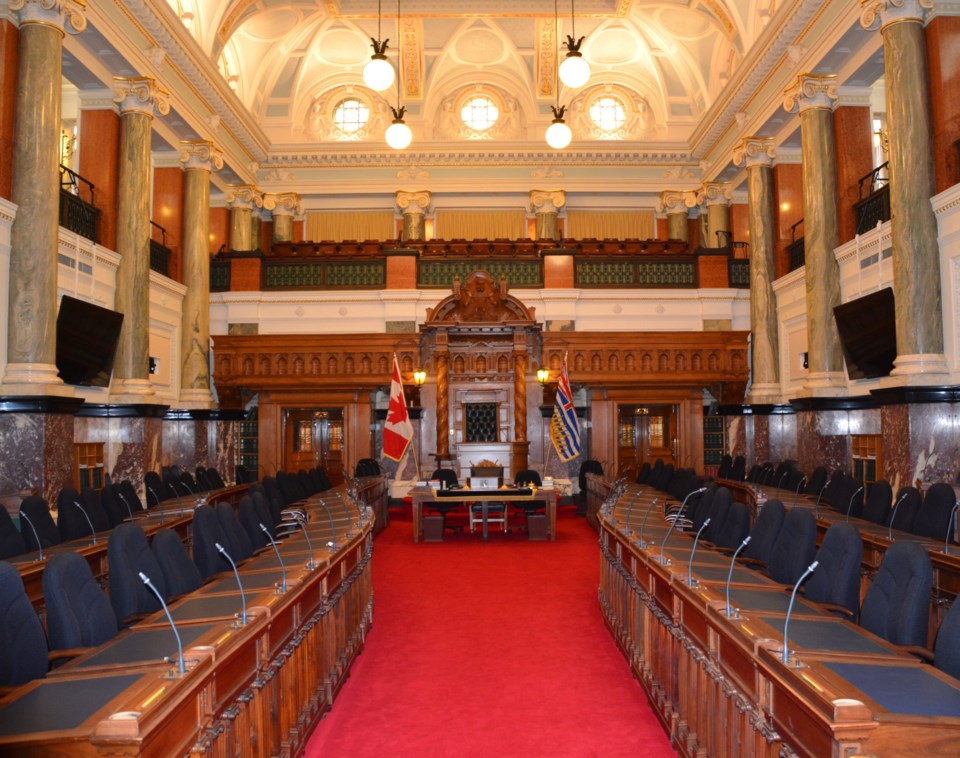Business is about to pick up in B.C.’s public inquiry into money laundering, with a bombshell new list of current and former cabinet ministers called to testify later this month.
The biggest name by far is Christy Clark, the province’s premier from 2011 to 2017, who will find herself under oath on the stand in front of Justice Austin Cullen.
It’s extremely rare for a former premier to be a witness in a judicial setting like this, and she’ll face intense scrutiny from the small army of lawyers representing all the players and intervenors in the case.
Every sentence will be parsed. Every answer will be dissected. Everyone will be looking to score points at her expense.
The inquiry so far has been a mild, somewhat boring affair that has puttered along in the background for more than a year, failing to shed any dramatic light on the issue of how billions of dollars in dirty money from international organized criminal syndicates was washed clean through B.C.’s casinos, real estate sector, luxury car dealerships, and horse racing venues.
That will all change once Clark takes the stand, somewhere between April 19 and 30.
If the former premier is the main event, then there are still some notable encores.
Former Solicitor General Rich Coleman can expect a rough ride on why he cancelled integrated gaming enforcement units and cut back on oversight during his time as the minister in charge of gambling.
Former Finance Minister Mike de Jong similarly will face difficult questions about relying on hundreds of millions of dollars in casino revenue to balance the budget.
Former Attorney General and Solicitor General Shirley Bond will get quizzed on B.C.’s dismal prosecution record and police enforcement on money laundering. She’ll also have to be aware that as the interim BC Liberal leader, anything she says will be noted by the governing New Democrats and thrown back in her face in question period at the legislature.
The NDP government couldn’t have asked for a better list of BC Liberals to testify when it launched the public inquiry in May of 2019. A former premier, top cabinet ministers, and the current leader of the Opposition check all the boxes needed to create a stockpile of ammunition and attack ads for future elections. Just the image of BC Liberals taking the stand will be enough to create the appearance of guilt, no matter what is said.
It’s not an entirely risk-free exercise for the NDP though.
Attorney General David Eby was also called to testify. He’s already faced criticism during testimony by former B.C. Lottery Corporation officials that he was more interested in crafting political narratives to attack the BC Liberals than in finding solutions and following the evidence on money laundering after taking office.
Fortunately for Eby, his critics so far haven’t found much traction. And he’s quick on his feet, with a deep knowledge of the file. Still, there’s always a risk he could come under attack from all sides while on the stand.
Also set to testify is Lori Wanamaker, deputy minister to Premier John Horgan, and Richard Fyfe, the deputy attorney general. Their careers span both the previous BC Liberal government and current NDP government; their testimony could be critical for either party.
One thing is for sure, after a year of flying under the radar during the pandemic, the Cullen Commission will get major attention soon.
The inquiry’s final report is due in December.
Rob Shaw has spent more than 13 years covering BC politics, now reporting for CHEK News and writing for The Orca. He is the co-author of the national best-selling book A Matter of Confidence, and a regular guest on CBC Radio.
SWIM ON:
- Rob Shaw last wrote that with the housing market once again superheated, people are starting to look for new ideas and not scapegoats – which is no easy task.
- Michael Taube has questions about the federal government hiring process(es?) that resulted in Governor-General Julie Payette and Admiral Art McDonald.
- Mark Milke reviews George Abbott’s Big Promises, Small Government.



